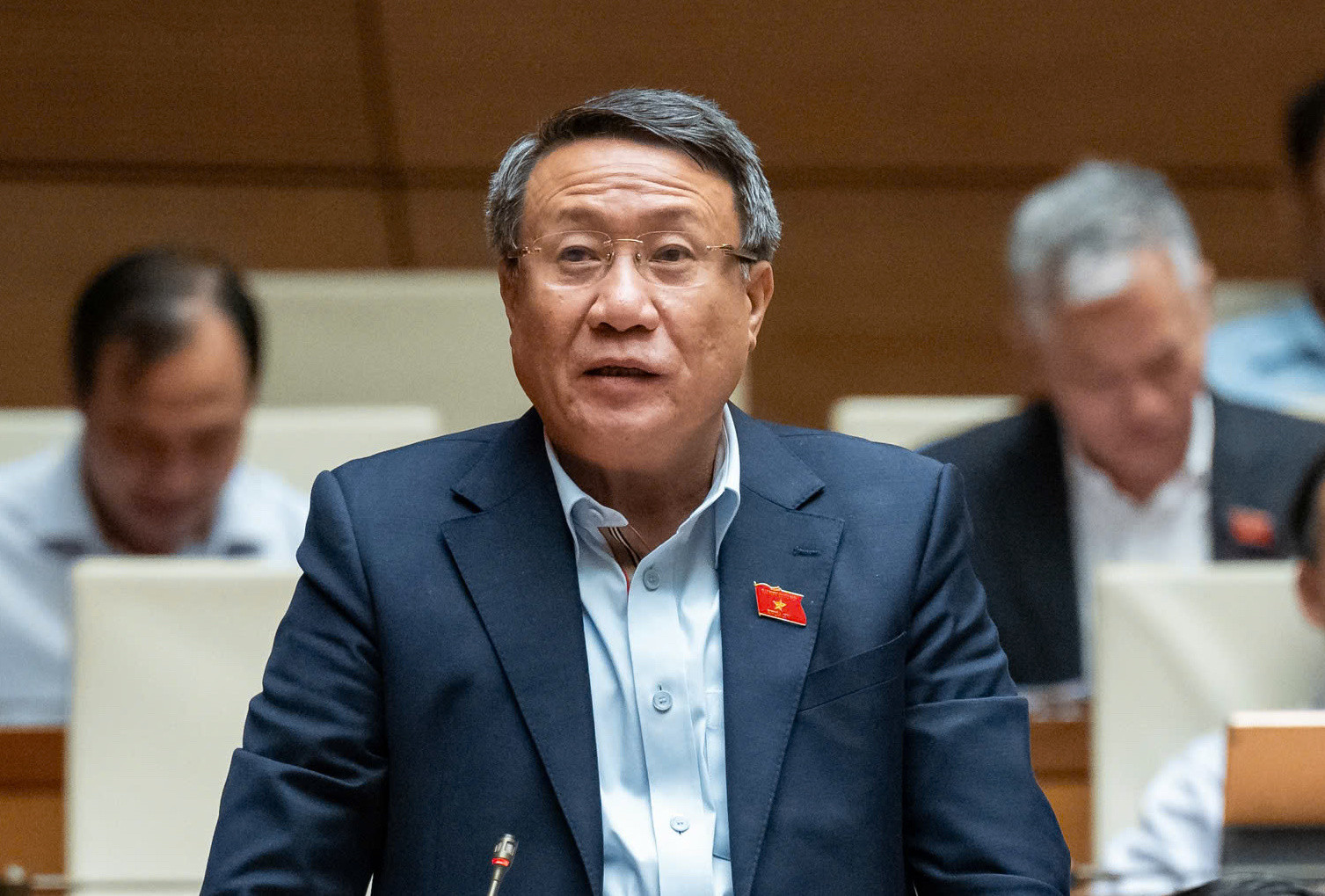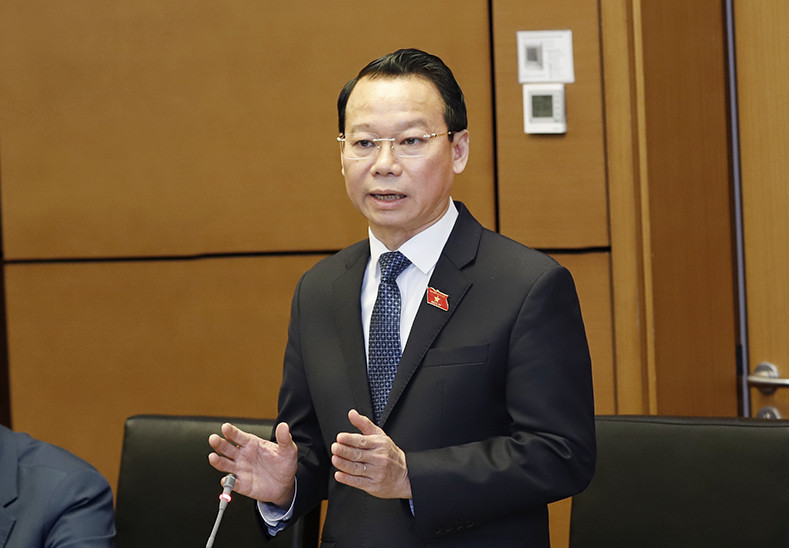Proposed amendments to the Law on Promulgation of Legal Documents aim to enhance the government's ability to manage economic and social policies efficiently while reinforcing the accountability of proposing agencies.
On the morning of February 12, National Assembly deputies discussed the draft amendments to the law, which are designed to provide the government with greater flexibility in governance.
Ensuring accountability in legislative proposals

National Assembly Chairman Tran Thanh Man emphasized that the proposed amendments clarify the legislative roles of both the National Assembly and the government.
Under this framework, the National Assembly will set broad legal principles, while the government will issue decrees and circulars for policy implementation.
This change is intended to improve governance efficiency, allowing the government to respond more swiftly to evolving economic and social conditions.
Additionally, it strengthens the accountability of ministries and agencies that propose laws, requiring them to take full responsibility for the legislative process.
"In the past, ministries and agencies would draft only 50-60% of a law before passing it to the National Assembly for completion, creating a heavy workload for legislative committees. The 2024 Land Law, for example, required multiple high-level meetings," Chairman Man noted.
He also reiterated that ministers and agency heads must take full responsibility for the laws they propose, rather than delegating the task to lower-ranking officials.
Enhancing lawmaking efficiency

The amendments also propose a new legislative process where laws could be passed in a single session. This approach aims to streamline the legal system while ensuring thorough discussion before approval.
Chairman Man highlighted that efficient lawmaking has contributed to Vietnam’s strong economic growth. "The prime minister has acknowledged the National Assembly’s role in facilitating policies that enabled Vietnam to achieve a 7.09% growth rate in 2024, one of the highest in the region and the world," he said.
He emphasized the need to continue improving the legal framework to remove barriers to economic and social development, with a target GDP growth rate of over 8% as a foundation for achieving double-digit growth between 2026 and 2030.
"To become a high-income country by 2045, Vietnam must accelerate institutional reforms, particularly in science, technology, innovation, and digital transformation," Chairman Man stated, citing international examples of streamlined governance, such as Singapore’s rapid immigration processing and the UAE’s five-minute investment licensing.
Balancing flexibility and oversight

Ha Sy Dong, acting chairman of Quang Tri Province, acknowledged that the proposed law represents a major shift, granting the government greater legislative authority. Under this model, the National Assembly would primarily approve legal frameworks, leaving the government responsible for detailed regulations.
This approach allows for a more flexible lawmaking process, as decrees can be issued more rapidly than laws. However, Dong cautioned that shifting more responsibility to the government could reduce public oversight, as National Assembly debates often reflect public concerns more directly than ministerial decisions.
"While this model speeds up decision-making, it also comes with risks," Dong noted. "If laws are not thoroughly debated, they may contain gaps or inconsistencies, leading to implementation challenges. Poorly drafted laws can create confusion for businesses and citizens, disrupting economic activities."
Dong also pointed out that Vietnam has recently seen an increase in the use of fast-track legislative procedures.
"In 2025, the government plans to issue around 130 legal documents, with 69 using the expedited process. While this approach allows for quick policymaking, it reduces public consultation and scrutiny," he warned.
To address these concerns, Dong suggested that even fast-tracked regulations should be published for public review before enactment.
Challenges of consolidating laws by ministry
Some lawmakers have proposed that each ministry should consolidate its regulations into a single comprehensive law to simplify the legal system. However, Minister of Natural Resources and Environment Do Duc Duy argued that such an approach could make laws overly complex and difficult to draft.
"The government has considered this issue carefully. While sector-specific laws will continue to be developed, we are also introducing multi-sectoral laws that apply to specific regions or projects," Minister Duy explained.
He cited the Capital Law, which governs various policy areas within Hanoi, as an example of a multi-sectoral approach. Similar frameworks are being considered for Ho Chi Minh City and other major urban centers.
Additionally, Minister Duy noted that Vietnam’s infrastructure projects, such as the North-South high-speed railway and the Ninh Thuan nuclear power plant, require unique regulatory frameworks. As a result, specialized laws will be developed for these major projects.
Thu Hang